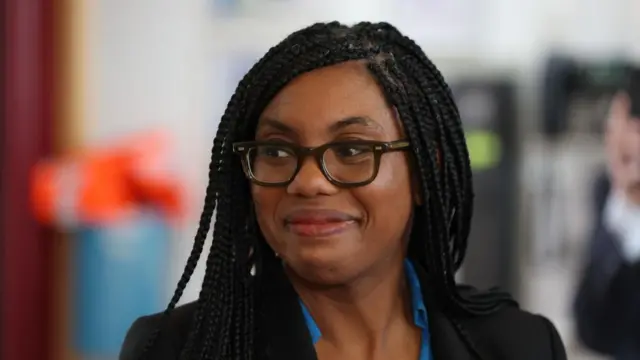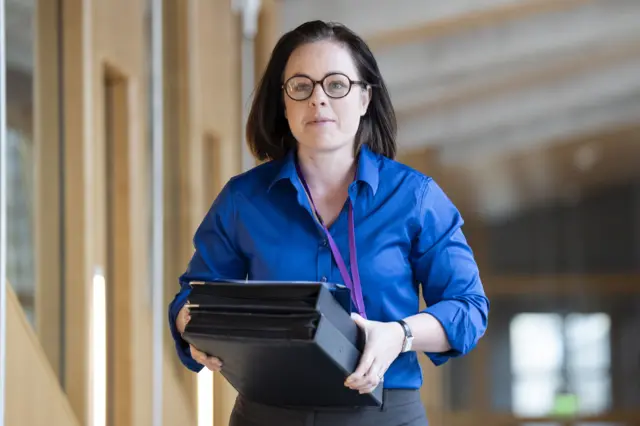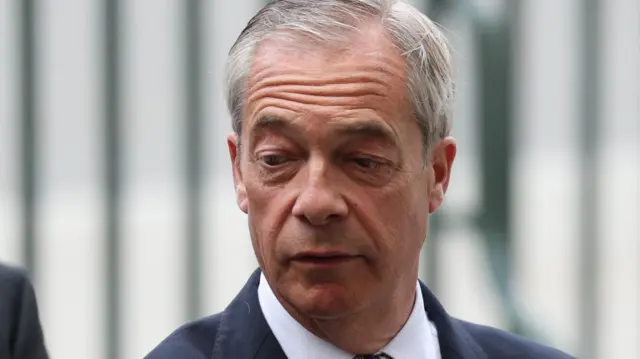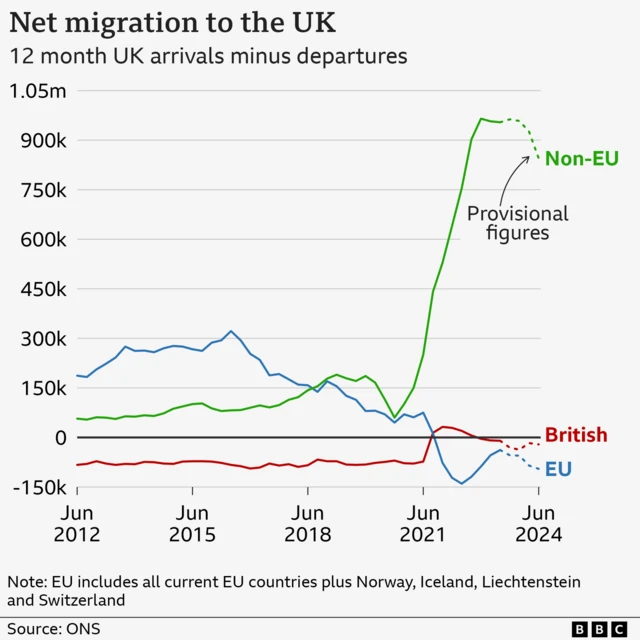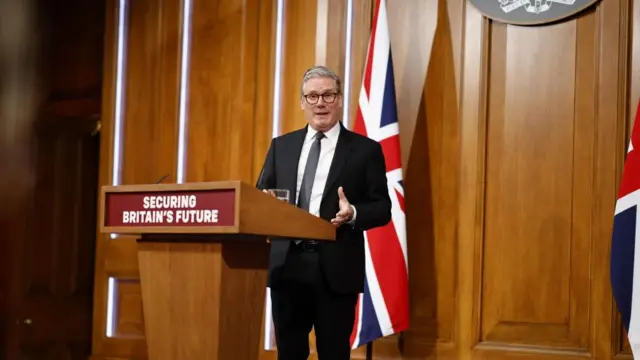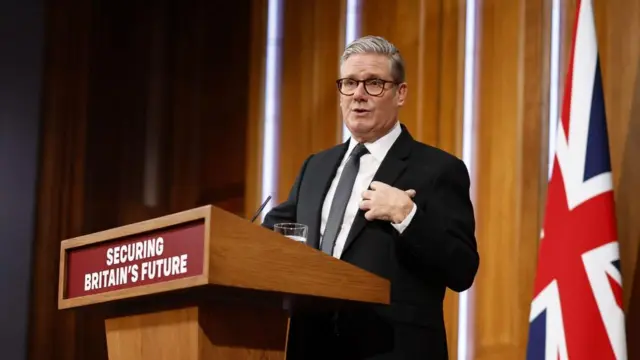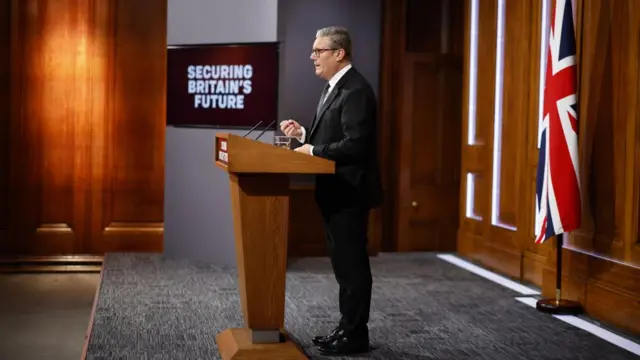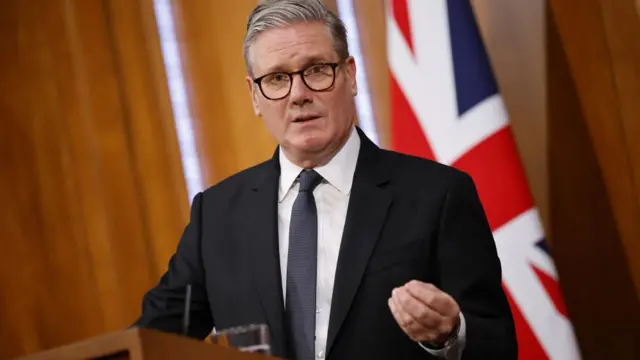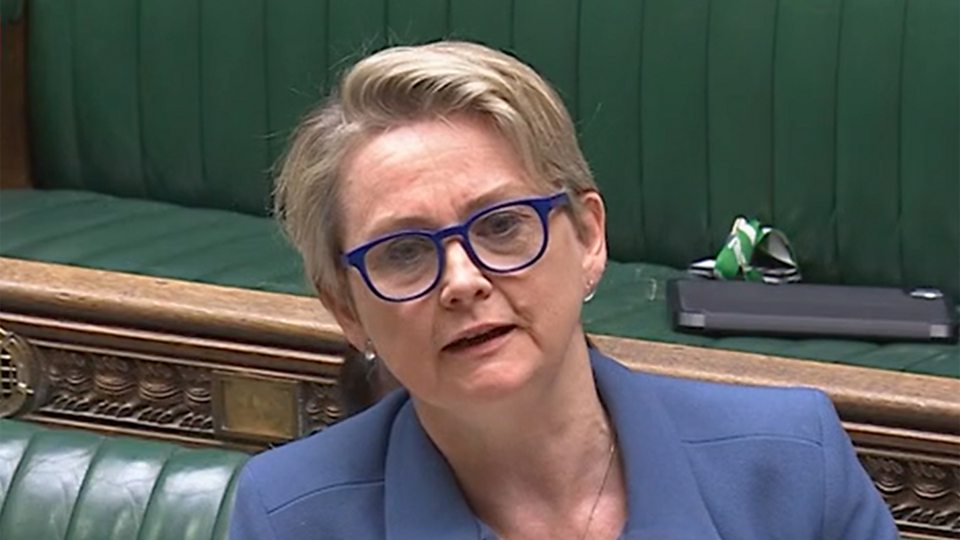Migrant dies crossing English Channelpublished at 10:57 BST 12 May
A migrant has died and several others are injured after 68 people tried to cross the English Channel in a small boat overnight.
The boat was wrecked off Hardelot in northern France, leaving some suffering from hypothermia and burns.
Those rescued were taken to the port of Boulogne sur mer.
Emergency services, including a patrol boat and French navy helicopter, attended the scene to assist.
As a reminder: Starmer's announcement today is focused on legal migration, not illegal routes into the UK such as small boats.
